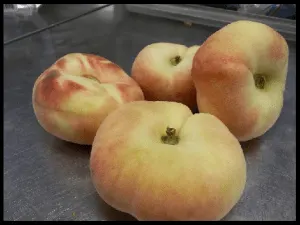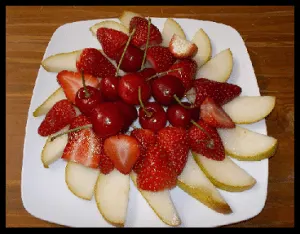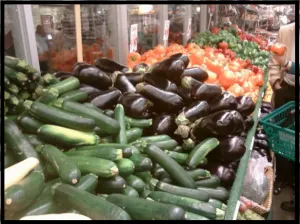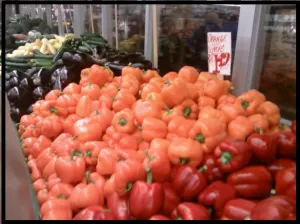Back in the day I would down a Big Mac and not think twice what I was putting into my body. Nowadays, as the pounds have become harder to shed and reports of cancer and other diseases have increased I have started thinking more about eating healthy. However, trying to eat super healthy is not cheap! Chad and I try to eat well- we read labels, we use our Fooducate app in the grocery store and we try to eat organic- but it is very difficult on a budget!
(Read Educate on Fooducate)
We try to buy organic produce as much as we can, but sometimes our budget just doesn’t allow it (or the store just doesn’t carry organic fruit and vegetables – and I mean YOU my local Winn Dixie!!)
I came across this list – the “dirty dozen”- the produce that has the highest levels of pesticide and chemical fertilizers. This is the produce you really want to buy organic-
The Dirty Dozen ![]()
- Peaches
- Apples
- Bell Peppers
- Celery
- Nectarines
- Strawberries
- Blueberries
- Cucumbers
- Grapes
- Spinach
- Lettuce
- Potatoes
The following is a list of the least contaminated non-organic fruits and veggies according to the EWG (Environmental Working Group). The group refers to these as the “Clean 15”. They still have all the yucky pesticides and chemicals so this is not a “Clean” list.
The Clean 15 (but still dirty)![]()
- Onions
- Avocado
- Corn (Frozen)
- Pineapples
- Mango
- Asparagus
- Peas (Frozen)
- Kiwi Fruit
- Bananas
- Eggplant
- Cantaloupe
- Sweet Potatoes
- Grapefruit
- Watermelon
- Mushrooms
So even if you can’t buy organic you should take special care in washing fruits and veggies before consuming them- here are some tips from the FDA on their website–
- Wash your hands for 20 seconds with warm water and soap before and after preparing fresh produce.
- Cut away any damaged or bruised areas before preparing or eating.
- Gently rub produce while holding under plain running water. There’s no need to use soap or a produce wash.
- Wash produce BEFORE you peel it, so dirt and bacteria aren’t transferred from the knife onto the fruit or vegetable.
- Use a clean vegetable brush to scrub firm produce, such as melons and cucumbers.
- Dry produce with a clean cloth or paper towel to further reduce bacteria that may be present.
- Throw away the outermost leaves of a head of lettuce or cabbage.
So, now you know- go out and EAT YOUR VEGETABLES!!





Jonathan Barnhart
Monday 8th of October 2012
Anna Marie! Long time no talk! how are things in Orlando? are you doing halloween horror nights again this year? miss you and hope you, chad, and lenore are all doing well :-) ttys!
J9 STYLE
Saturday 29th of September 2012
Great post. This is really helpful and will change my produce shopping for sure!
Helen Corbin
Friday 28th of September 2012
Great and educational blog.